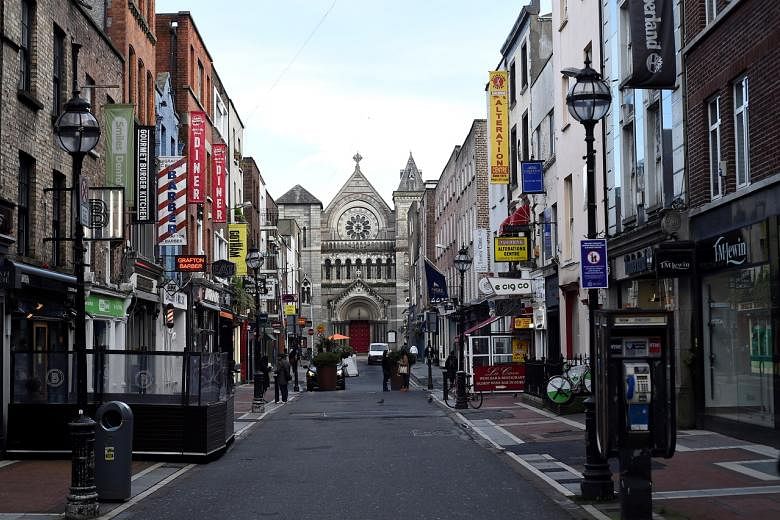DUBLIN (REUTERS) - Ireland will reopen only small parts of society over the next two months, starting with the return to school of some pupils within days as the more infectious UK Covid-19 variant slows suppression of its deadliest wave to date.
Ireland entered a third national lockdown in late December after a brief reopening led to an enormous spike in infections.
Prime Minister Micheál Martin said on Tuesday (Feb 23) that the variant's near dominance was almost akin to battling a new virus.
The government extended its highest level of restrictions until April 5 when it will consider easing limits keeping people to within five kilometres (three miles) of their homes and resuming some construction. Any further gradual easing will take another three to four weeks beyond that, according to a broad reopening plan.
"I know how hard this is. I know the toll that it is having on so many people's mental health and well being. I know the devastation it has brought to so many businesses and livelihoods," Martin said in a televised address.
"But I also know that the end is now truly in sight," he said, adding that if vaccines arrive on schedule, 55 to 60 per cent of adults will be fully vaccinated by the end of June.
Justifying the cautious approach that Martin said last week could leave the hospitality sector waiting until mid-summer to open again, Public Expenditure Minister Michael McGrath said earlier on Tuesday that "there can be no fourth lockdown." A similarly slow exit from the first lockdown has meant that workplaces have been shut for longer in Ireland than in any other European country, according to a Reuters analysis of the Oxford Coronavirus Government Response Tracker.
The government extended its main income, unemployment, grant and commercial rates waiver supports for workers and businesses to the end of June.
Research by Ireland's Central Bank and Central Statistics Office on Tuesday showed that gross household incomes would have fallen by up to 20 per cent during the last period of similarly tough restrictions without the supports.
Instead gross income for the median Irish household fell by 1.7 per cent year-on-year in the second quarter of 2020 before rising by 3 per cent in the third quarter when large parts of the economy reopened.
Unlike neighbouring England's four-stage plan on Monday to lift most restrictions by June 21 - bolstered by its faster vaccine rollout - the lack of exact reopening dates in Ireland's plan was criticised by some groups.
"It is disappointing there is no hope on the horizon for hospitality. The sector is not an inconvenience which the government can sweep under the carpet," said Donall O'Keeffe, chief executive of the Licensed Vintners Association.

